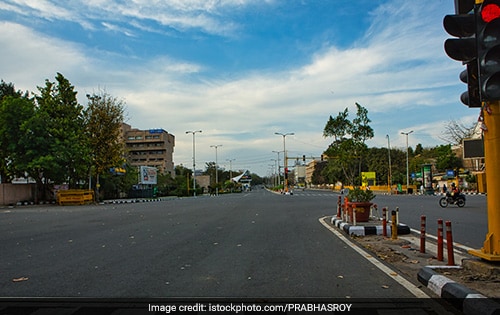New Delhi: The nationwide lockdown that brought 1.3 billion people to a stop has apparently caused positive changes in the environment, atleast temporarily. Skies are clearer and river water seems cleaner.
Visuals of a cleaner River Ganga have emerged from Uttar Pradesh's Kanpur as well as Varanasi. The clear water is a result of the shutdown of most industries.
In a rare sighting, fishes can be seen near the Varanasi ghaat steps. This seems to have happened because of absence or crowds and clean water.
The lockdown has also led to better air quality. According to the World Air Quality, the average concentration of PM 2.5 in New Delhi came down by 71 per cent for a week last month. Nitrogen Dioxide, a pollutant, has also witnessed a decline of 71 per cent.
While in most parts of Delhi, the water of River Yamuna has also started to appear clearer in southeast Delhi's Kalindi Kunj, the heavy amount of toxic foam that is usually seen around the year still continues. The toxic foam is caused due to a mix of sewage, detergents and chemicals from industrial waste.
Aam Aadmi Party MLA and Delhi Jal Board Vice-Chairman Raghav Chadha said absence of people has made the Yamuna cleaner.
"Many industries and offices are closed due to the lockdown these days and therefore the Yamuna is looking cleaner. The stoppage of industrial pollutants and industrial waste has definitely had a positive effect on water quality. We will conduct testing of the water to ascertain the percentage of improvement in the quality," he said.
In the case of River Ganga too, the lab results of the water quality are awaited. Experts say that along with the lockdown, other factors too have contributed to cleaner water.
Himanshu Thakkar, co-ordinator at South Asia Network on Dams, Rivers and People (SANDRP) told NDTV, "Alongwith lockdown there is increased waterflow due to unseasonal rainfall and snowfall in some parts. Religious activities have decreased, especially in Varanasi, where lesser cremations are happening. The current scenario should shape our future approach of how authorities should minimise industrial effluents in the water bodies."
While the relatively cleaner Yamuna, atleast based on appearance, is good news for people, the true picture of the impact of the lockdown will come out only when the lab results of the water samples are out.
The country has been in a 21-day lockdown from March 24 to tackle the spread of the deadly coronavirus that has affected thousands in India.





